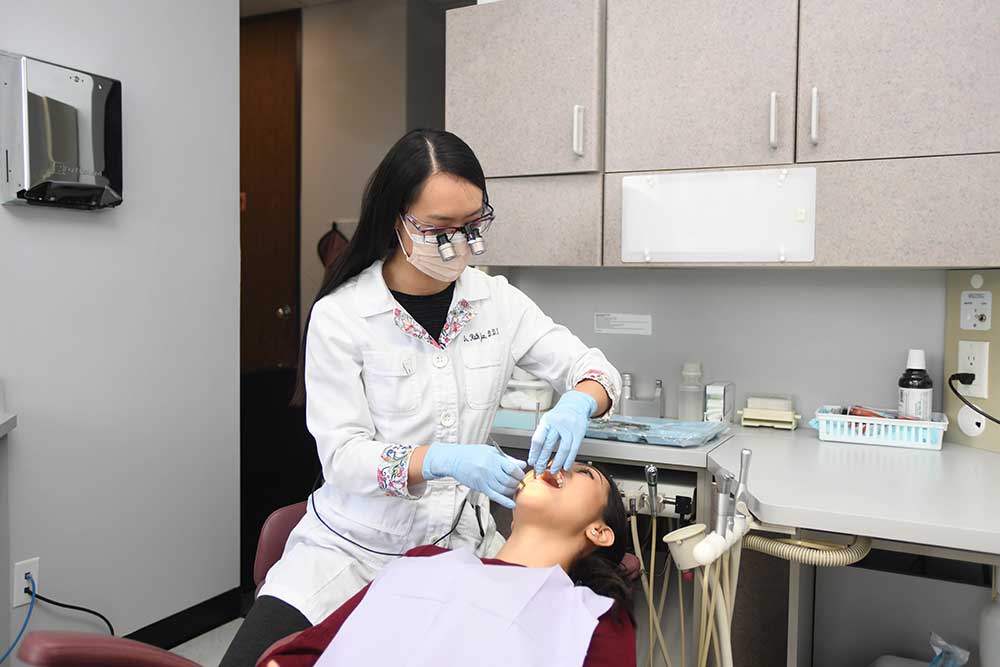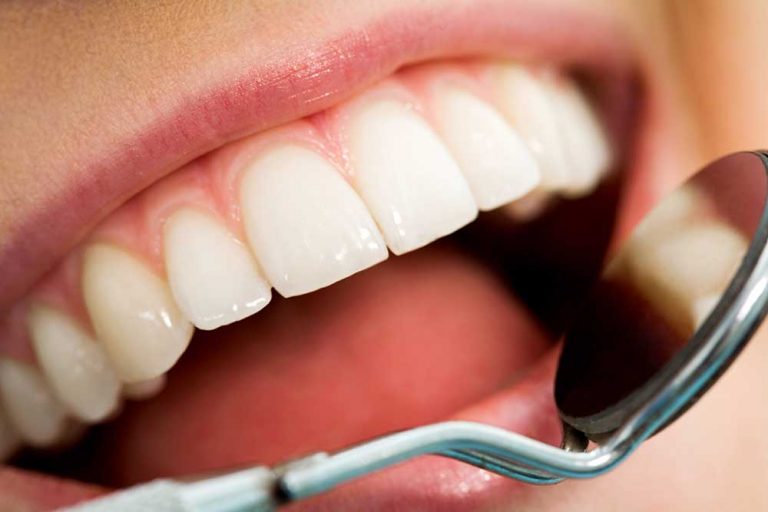In This Article
Dental Sealants | Nottingham Dental
Dental sealants are resin materials placed along the grooves of children’s molars to protect them from bacterial decay. Continue reading to find out more about dental sealants.

Sealants a great way to protect your teeth from future cavities. Book your appointment today!

A dentist’s goal is always to limit the number of treatments you need for your teeth as much as possible. It’s best for children to enter adulthood with limited or no cases of teeth restoration because that also limits the possibility of future issues.
Dental Sealants are one of the best way to ensure your children don’t develop cavities or need complex treatments and procedures in the future. Deep grooves run along the center of your molars — these grooves may look like canyons when seen under a microscope. Even though these grooves are narrower than a hair strand, they’re still wide enough for bacteria to thrive. That’s why these regions are common spots for cavities and bacterial infections.
Through the process of Sealants, dentists pain a thin plastic coating over these grooves to seal them shut and thus prevent tooth decay and cavities from occurring. The sealant bonds to the grooves and the surface of your teeth, acting like a protective layer over the enamel.
The dental sealants procedure is extremely simple and quick and may also be done without the use of anesthesia. Once the grooves are sealed, bacteria can’t get into them, and it’s also easier for the child to clean their teeth. Sealants last several years but need to be repaired every once in a while and they guarantee about a 90% reduced risk of bacterial decay in molars.
So now that you understand the basic facts about dental sealants, you can read on to learn about them in detail.
Ask us if sealants are a good option for you or your child! Book your appointment today.
Who Needs Sealants?
Children and teenagers are the ideal candidates for dental sealants because they’re at the greatest risk of developing dental decay in the grooves of the premolars and molars. However, if you’re an adult who has never had fillings in your molars, you may also be a good candidate for the procedure.
Ideally speaking, children should get sealants in their molars and premolars as soon as their permanent teeth come in — this will protect their teeth from cavities and decay at a really young age. However, in some cases, you may also consider getting sealants for your child’s baby teeth — this is because their baby teeth also hold depressions that are prone to cavities and protecting the baby teeth ensures that the permanent teeth come out properly.
Sealants may help prevent further damage to your teeth. Schedule your same day dentist appointment now!
How to Apply Sealants?
The dentist thoroughly cleans the teeth that have to be treated.
The teeth are dried and the dentist places cotton or absorbent materials around the teeth to prevent them from getting wet.
The chewing surfaces of the teeth are treated with an acid solution. This roughens up the surface of the teeth, which is necessary for the bonding process.
The teeth are rinsed and dried again.
Sealants in the form of a resin material are painted over the surface of the enamel. It bonds with the tooth and eventually hardens. The dentist may also use a special curing light to help the sealant harden.
Find out if sealants are covered by your dental insurance. We offer free insurance verification for your convenience. Book now!
Dental Sealants Q&A
What do Sealants Look Like?
There are various types of dental sealants. Depending on the type of dental sealant used by your dentist, it may be completely clear, white, or have a slight tint. In most cases, dentists apply sealants that can blend in with your teeth and not stand out.
What does it mean if one of my teeth looks dark and is experiencing throbbing pain?
Depending on how well you take care of your teeth, sealants can last a long time. On average, your sealants can continue protecting your teeth for around 10 years. However, you will have to go for regular dental appointments so they can monitor your sealants for signs of wearing. If your sealants are chipped or worn, the dentist should replace them immediately.
Can Insurance Cover Sealants?
Dental insurances do cover the cost of sealants to various degrees, but only for children under the age of 18. You should talk to your dentist and your insurance provider about all your options.
Can Sealants be Placed over Cavities?
Yes, in some cases, dental sealants can be placed over teeth with early signs of decay. However, if the cavity has advanced considerably or you have fillings, the dentist may not recommend sealants. You should go to your nearest dentist so they can examine your teeth and tell you if you’re a suitable candidate for sealants.
Are there Any Side Effects of Sealants?
Sealants aren’t known to induce any side effects other than any allergic reactions you may already have.
Do Sealants Contain BPA?
Sealants do generally carry a small amount of BPA. However, the amount of BPA used is negligible and doesn’t cause you, your loved ones, or even little children any harm. The amount of BPA used in sealants is comparable to the amount of BPA you contact through dust or regular cosmetic products anyway. As such, sealants are completely safe and non-toxic.
Do you want to learn more about Sealants? Ask us!
Schedule an Appointment for Sealants
Nottingham Dental is one of the best clinics for sealants and other general dentistry procedures in Katy, TX. We have some of the country’s most highly-qualified dentists and dental hygienists who will study your teeth carefully to decide if you’re suitable for sealants. Our dentists are also trained to work with young children and they can make your children or teenagers feel comfortable about the procedure. For more information, please schedule an appointment today.

